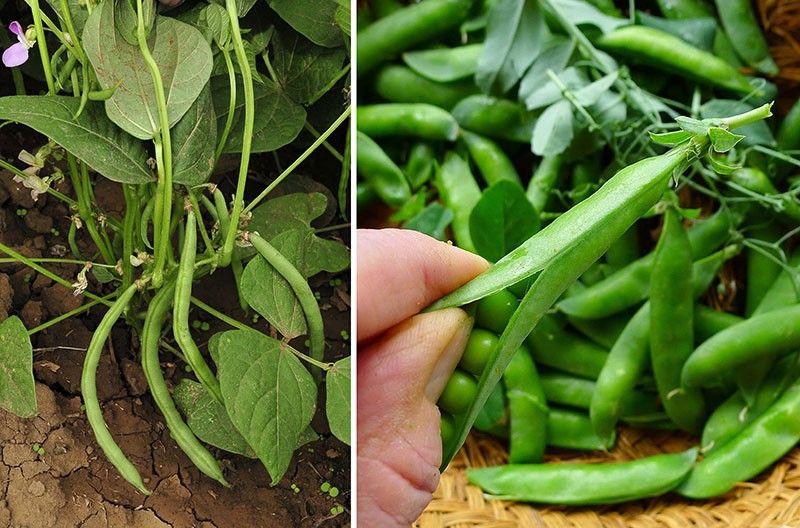Snap beans, garden peas tested for organic farming

MANILA, Philippines — Snap bean or “baguio bean” and garden pea (chicharo) are two of the most important vegetable legumes grown in the Philippines.
In fact, cooking Filipino’s favorite dish, pancit will never be complete without these two crops.
Given their economic importance, these legumes have been among the top vegetable crops being produced in the Cordillera region.
However, areas planted with snap bean and garden pea deteriorated from 2004 to 2009 due to lack of improved varieties.
Farmers have been clamoring for improved varieties that are not only high-yielding, with resistance to pests and diseases, but have good quality pods. And with the growing concern for “safe vegetables”, consumers prefer buying vegetables that are pesticide-free.
With this in mind, Leoncia Tandang of the Highland Crops Research Station of the Benguet State University (BSU), implemented a project that will pilot test the adaptability of improved varieties of bush and pole snap beans, and garden pea in various locations of the country and multiply the seeds suited under different conditions for commercialization.
The project was implemented in 2012 with funding coming from the Bureau of Agricultural Research.
“At BSU, we have developed several varieties of vegetable legumes such as snap beans and garden peas and so far, we are the only one working on these crops, which are also priority crops in the country as source of protein.
While we have already developed the available varieties, we have to share its production to other legume farmers in other parts of the country so they too can produce highland vegetable crops like snap beans and garden peas,” Tandang said.
She said while these crops are commercially-available under conventional method, farmers have an option to grow them under organic production system.
“We also want to encourage people to produce their own crops in their backyard so they will be able to produce even on a small scale,” she added.
“We have to try the suitability of these crops in each region with available supplies and materials which they can use as organic fertilizer, biopesticides, and other inputs to manage the crops under organic production system,” Tandang said.
Results showed that all the varieties of bush and pole snap beans and garden pea tested were technically feasible, economically viable, and socially acceptable.
However, for bush snap bean, varieties including contender, sablan, and bokod significantly produced the highest marketable fresh pod yield per plot.
For snap bean varieties, the top three are: kapangan, tublay, and kibungan while for garden pea varieties, betag, CGP 13, and boniero ranked first under the organic production system.
“Organic seed multiplication of suitable varieties for organic agriculture production system in different regions must be sustained for efficient seed supply chain in the country,” Tandang said.
- Latest




























